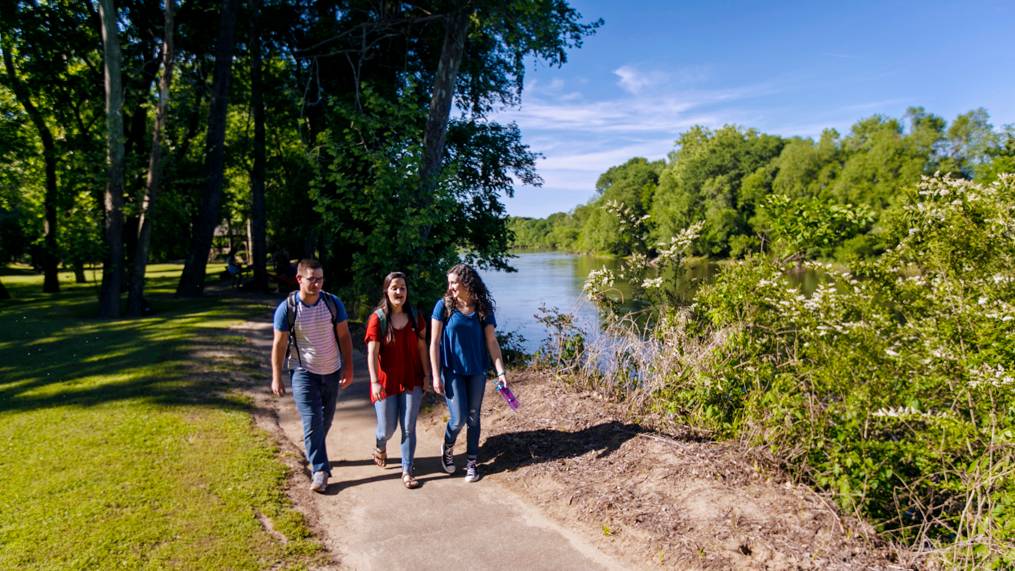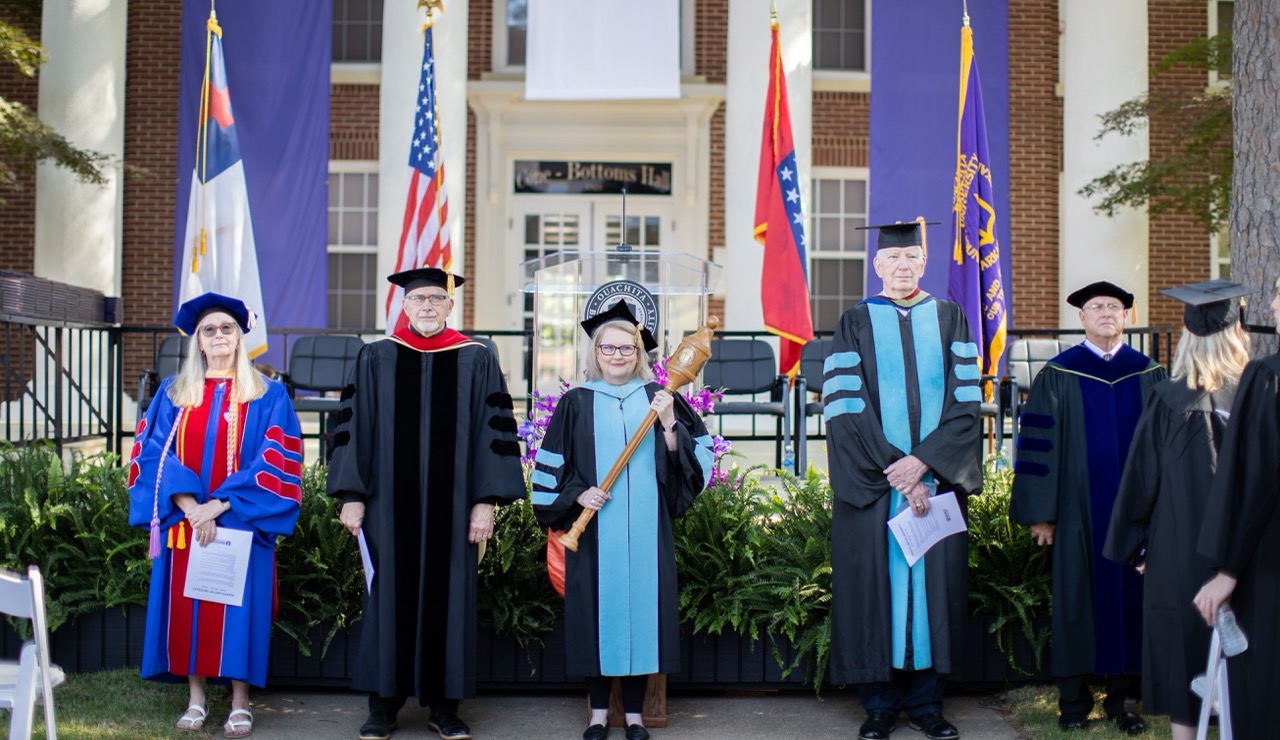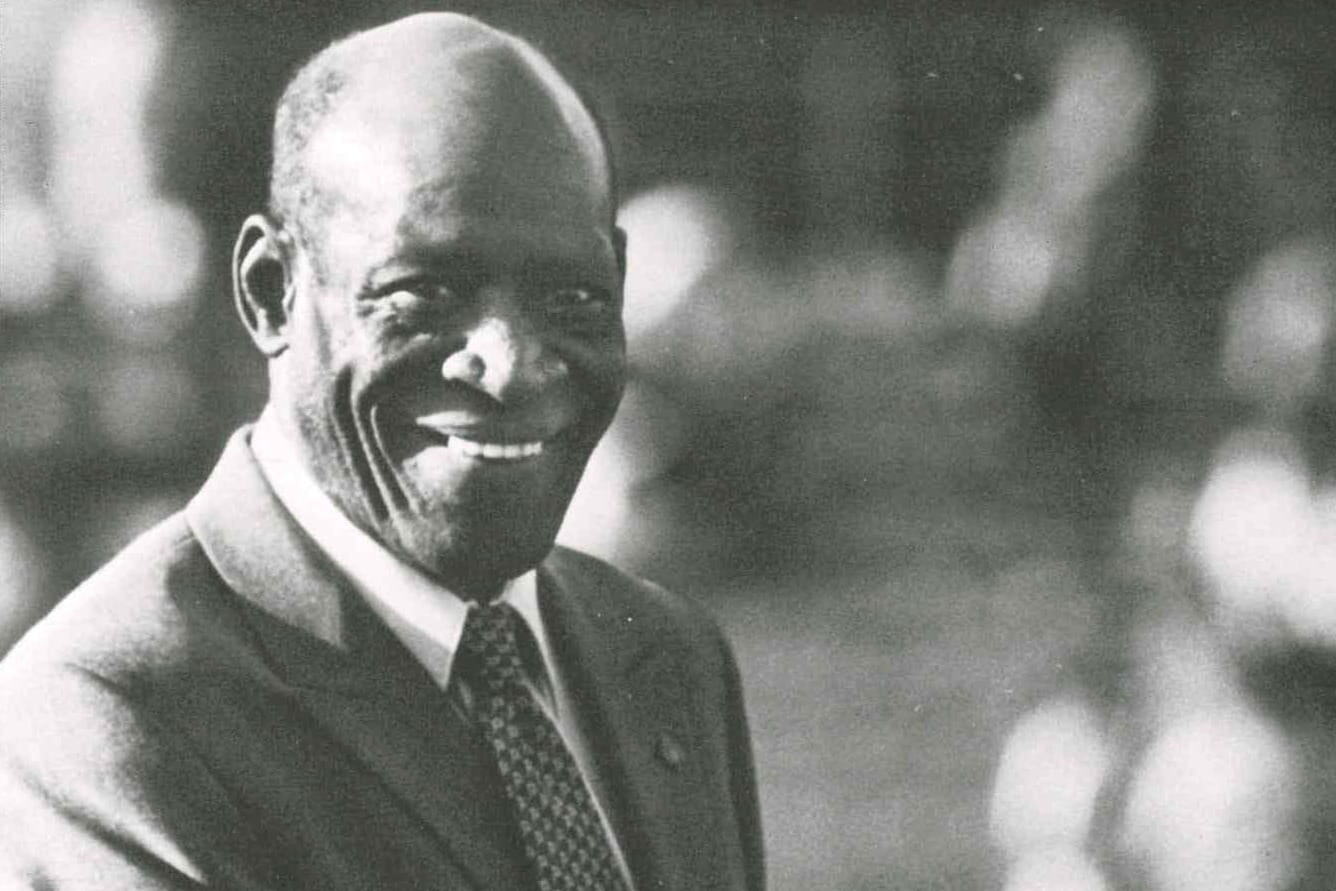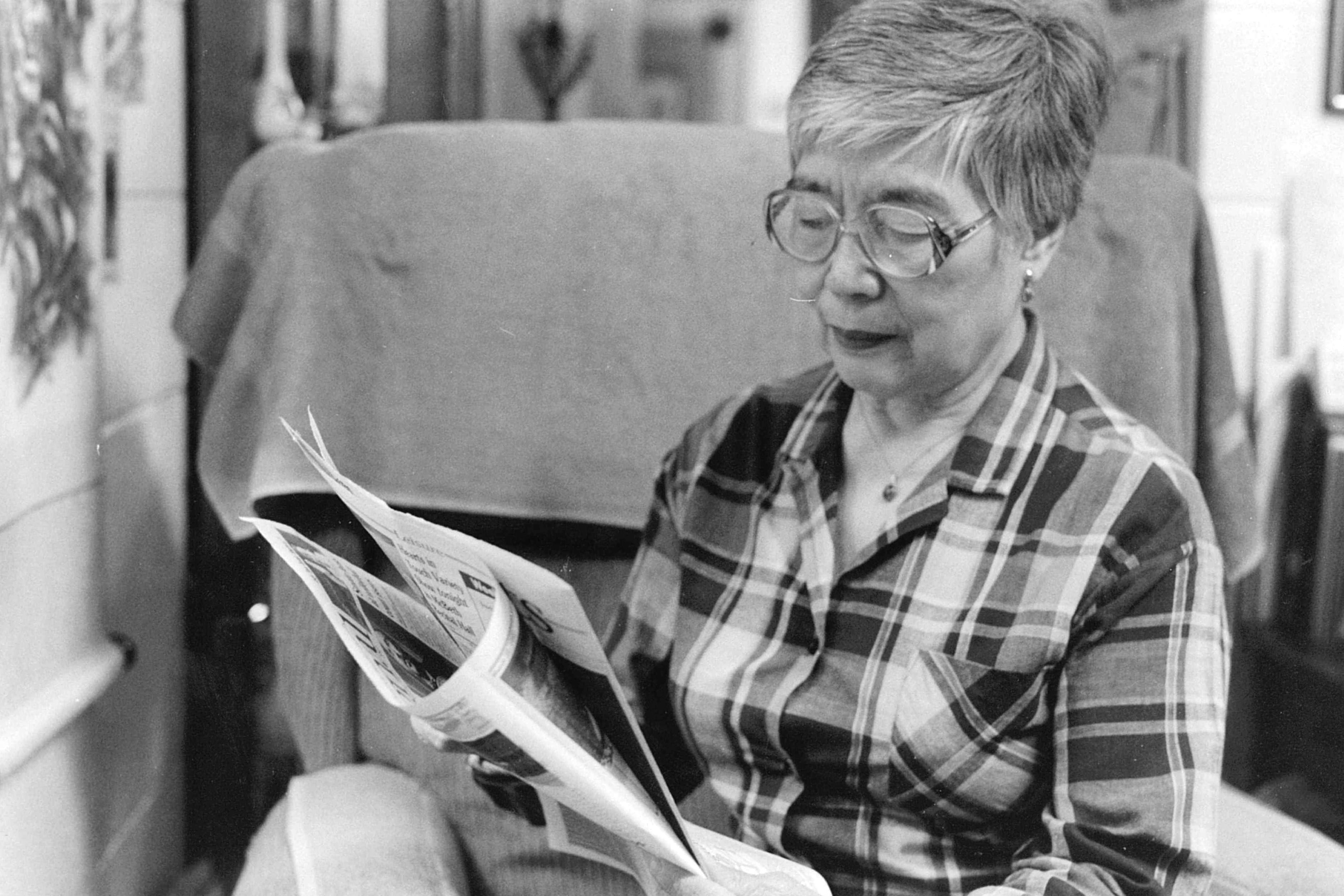Do you want grass or mud?
 January 15, 2019
- Rebecca Jones
January 15, 2019
- Rebecca Jones“Do you want grass or mud?”
It was a simple question with an obvious answer. And we knew what we were being asked when Dr. Ben Elrod, president of Ouachita during my time as a student, said, “Do you want grass or mud?”
I was sitting in Jones Performing Arts Center. It was ages ago in the 1990s — my sophomore or junior year — during a weekly chapel service when Dr. Elrod challenged us with this simple choice: grass or mud.
You see, it had become common, even on our small campus, to try to find the shortest routes between buildings. Sometimes we’d bypass sidewalks in favor of quicker paths across the grass. Over time, the grass was worn away and replaced by dusty trails. As you might know already, sometimes it’s very rainy in Arkadelphia, which meant a lot of mud.
Dr. Elrod was wise in offering us a choice. He didn’t demand cooperation or dictate his expectations. Instead, he allowed us to consider our options: Did we want to live on a beautiful, flourishing campus? Or, did we prefer to trudge through the mud?
If we wanted flourishing, we’d have to avoid the shortcuts. We’d have to take the longer paved routes to our destinations. We’d have to work a little harder and take a few more steps.
Also, we’d need to do this in sizeable numbers in order to make a real difference. We’d need to do it together. In order to allow the grass to grow, we needed to collectively move away from tearing up the grass. We’d need to make it less acceptable to take the shortcuts.
Dr. Elrod’s question has become memorable and significant within our community. Recently, Dr. Elrod, who was beloved by countless people, including me, passed away. As various tributes were posted, many from my era recalled his question: Do you want grass or mud?
At the time he asked the question, I believe Dr. Elrod was speaking literally. But I think there was a double meaning—one that’s more symbolic—that I think we can consider in light of our academic careers.
So … Do you want grass or mud?
Do you want to be part of a campus that is flourishing; do you want to be part of building it up, while also nurturing your own growth? Or, do you want to damage the landscape for yourselves and others; do you want to tear it down?
Like the question I heard from Dr. Elrod, this one also has an obvious answer, but the living it out can be challenging because shortcuts are tempting.
It could seem easier or more beneficial to garner a higher grade by looking to the work of another, taking words or ideas and not giving credit, shirking responsibilities in group work, or joining in incidents of academic dishonesty.
Those choices cut across the grass, they carve dusty paths that lead to mud and destruction. They do not nurture growth or flourishing. They do not build your integrity, nor do they allow you to contribute to a culture of honor on your campus. But, your path doesn’t have to be filled with shortcuts.
Arguably, one of the most significant ways we can contribute to flourishing is through our commitment to integrity and honor—to being trustworthy, respectful, responsible, fair and courageous people. By embracing Ouachita’s Covenant on Academic Honor, we’re saying we want to be people of integrity and honor. We’re saying that we are committed to avoiding the shortcuts, that we are willing to take the extra steps and do the additional work that is necessary.
Perhaps we can also recognize that we need each other in this. We need to collectively agree that we want to be part of a thriving environment. We want it to be unacceptable to take shortcuts, and we will gracefully hold one another accountable, offering avenues of restoration when there have been missteps.
The good news is we’re part of a heritage of honor and integrity, and we have people who have come before us who have modeled this example. One of those was Dr. Elrod. He was a man who did not take shortcuts. He sought to love and serve other people well, and there are so many stories of how he went the extra mile to do this.
I believe Dr. Elrod was able to do this because of his love for our Lord and Savior, Jesus Christ. Out of that love, Dr. Elrod responded to a call to ministry as a very young man. That call was lived out for most of his adult life at Ouachita. Dr. Elrod advocated for and led Ouachita and established a legacy that touches each of us:
- through our service with the Elrod Center,
- through the buildings on campus raised or renovated as a result of his leadership,
- through scholarships and programs enabling Ouachita to help people pursue a love of God and love of learning and lives of meaningful work.
All of these things resulted from a person who decided early on that he wanted grass, not mud. He wanted to contribute to flourishing and not destruction. He was a man of honor and integrity whose impact will be felt for many generations.
As you consider your life, your contributions, your covenant today to honor and integrity, I’ll leave you with Dr. Elrod’s question.
Do you want grass or mud?
This message originally was delivered by Dr. Rebecca Jones, associate professor of communications, at the signing ceremony for Ouachita’s Covenant on Academic Honor in August 2018.
- Tags:
- Academics
- Faculty/Staff
You Also Might Like
Recent
Ouachita reports Spring '26 enrollment, led by 50% increase in graduate students
February 11, 2026





